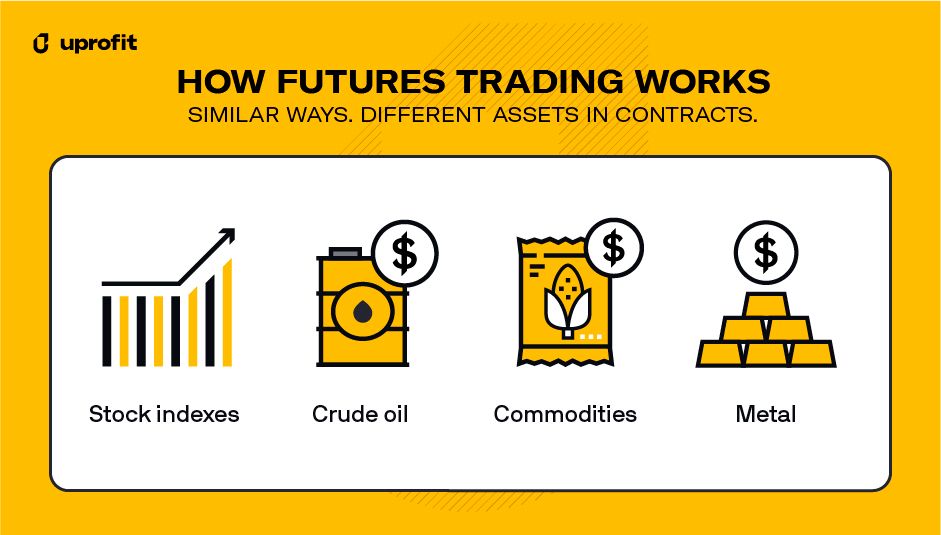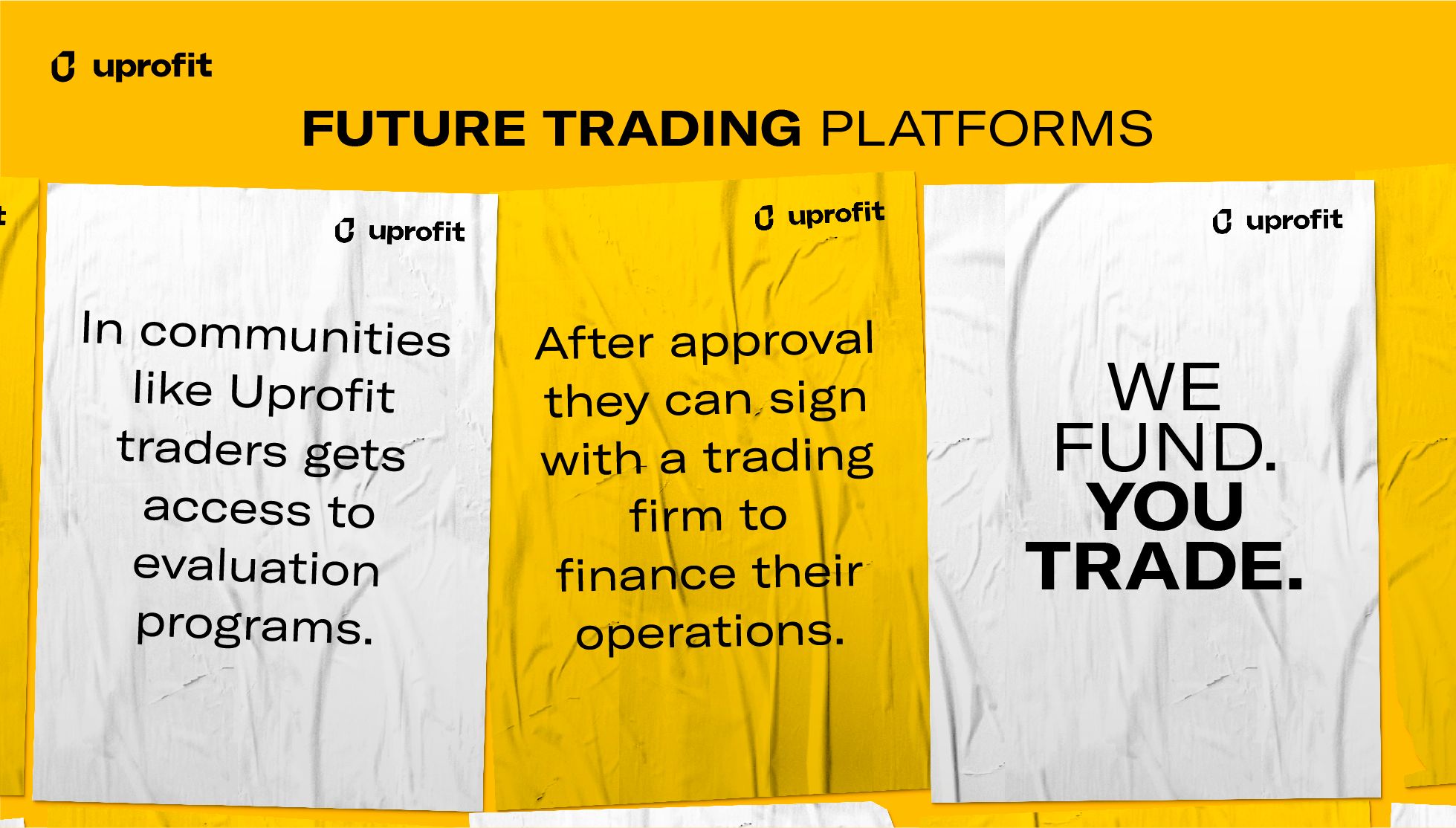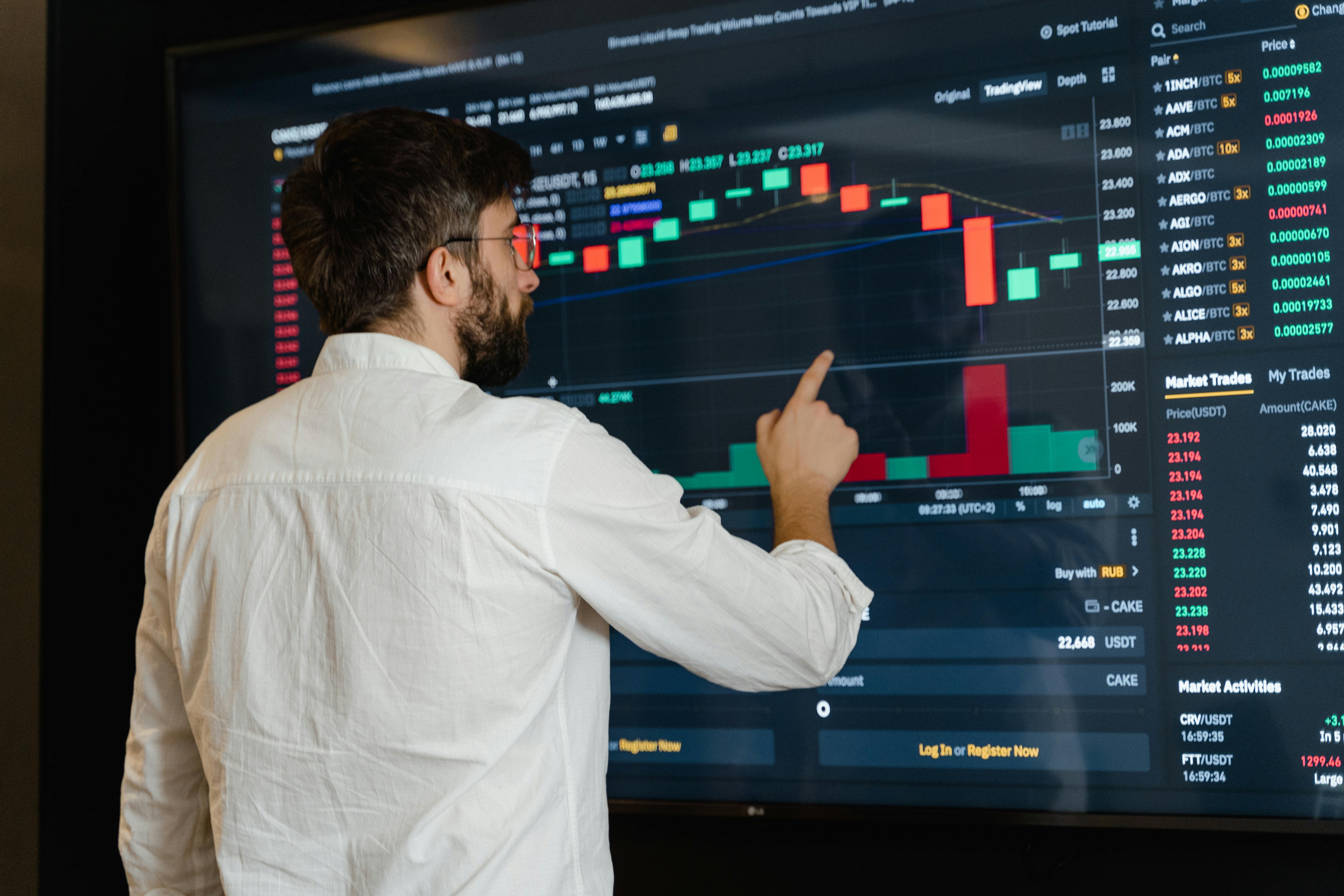Futures trading works in relation to the fluctuations that occur in the derivatives market.
A trader enters a contract to buy or sell an asset on a specified date, assuming the risk or obtaining the benefit from the variation of price that happens in that period of time.
Futures trading can be an abstract concept, difficult to comprehend. Basically, in this field, traders make profits or loose money according to their ability to speculate over the futures market. Practice, knowledge, consistency but also timing plays a big role in this activity.
There are several different markets in which traders can operate. Futures trading works similarly to the markets you may already know, but with contracts that regard different assets, such as metals, indexes, oil, commodities, among others. The trick is to immerse in different ones and to take advantage of the moments of more liquidity.

Given the big number of traders that have gotten involved in the futures trading market in the last few years, there have definitely been some adaptations that have made it more accessible for everybody.
Nowadays, there are markets that allow traders to operate with smaller contracts, and in conjunction, with a smaller amount of money.
E-minis and micro e-minis are smaller versions of futures contracts that make it possible to operate in the standard futures market but they're a little easier because they require a smaller investment.
Futures trading works the same way for every type of contract, thanks to positioning and leverage.
Positions and Leverage: Main Concepts About How Futures Trading Works
Learning allows us to make sense of the world around us, and with trading, this is not an exception at all. Traders spend a lot of time studying the markets to be able to predict what will happen to the prices of different assets.
This practice is what allows them to decide whether they will open a short or a long position in whatever futures instrument they choose.
If the price of an asset is on the rise, the most convenient thing to do is to open a long position regarding that asset. If that price is falling, the best thing to do is to open a short position when the time is right.
This allows the trader to sell their position in a shorter or longer period of time, which will benefit them according to what happens on the market.
However, this method isn’t as reliable as it seems. Futures trading work is unpredictable, and the same operation that could mean a big profit for the trader, can also mean a big loss for them.
The reason behind this is that futures traders are subject to leverage. This is a tool that allows traders to invest for a higher nominal value than the capital at their disposal.
They only deposit a margin of the total value, which gives them the opportunity to get big exposure to the market with a relatively small amount of money.
But, as we’ve been saying, futures trading works the same way for wins and losses. As much as the trader can win with leverage, they can also lose.
Sometimes, traders generate more losses than winnings, but just one big profit can make up for the whole day of trading. This is why consistency and discipline plays a big role in futures trading.
Coverage, Speculation and Diversification
There are different ways of approaching a futures market, depending on the objectives and the style of trader.
Some of the most popular approaches are coverage, speculation and diversification. All of them require a detailed understanding of the respective market.
A trader can make futures trading work for him or herself by opening a certain position to avoid the exposure to price fluctuations or to a high volatility in markets where they already have a position opened.
This method consists in being really aware of the market where they are operating, and it is more effective if the new position is opened in a market correlated with the previously opened position.
This works as follows: if a trader has a position opened in relation to an asset that will be dropping (according to their observations), to get coverage, they will open a new position in the opposite direction.
This means, for example, that if the trader owns a position related to oil, and it is dropping its price, the trader will get coverage by opening a new position with a futures contract in crude oil.
Another strategy consists in speculating with futures contracts, which means that traders buy and sell them without waiting until the expiration date, when the liquidation of the contract takes place.
This kind of futures trading works thanks to market fluctuations, which can have a good or a bad result for the trader.
Also, a lot of traders suggest investing in different assets at the same time so that the stakes are distributed.
This is the diversification of investments, a fundamental strategy to make futures trading work in your advantage. The rotation of futures contracts is even more profitable in futures markets than in traditional stock markets.
Futures Trading Platforms

To enter the futures markets, it is necessary to have an initial capital, and that can be pretty steep for some traders.
This is why there are communities, like ours in Uprofit, where traders like you can get access to evaluation programs. If you are approved, you can sign with a pro trading firm that will finance your trading for you.
Once you are approved and have capital to work with, you will get personal credentials to get started trading.
Futures trading works through specific trading platforms that will supply the users with all the data and price movements information for the futures market of their choice, in real time.
Remember, futures markets are centralized in the CME (Chicago Mercantile Exchange), which is why traders can get access to this information through these platforms.

One of the most used platforms to make futures trading work is NinjaTrader, but the credentials we grant at Uprofit are also suitable with other platforms, such as ATAS, Sierra Chart or Quantower.
All of the above can be accessed through Rtrader, a platform that shows traders the market's movement, where you can operate directly or just analyze the record of each and every one of your trades. This can make a huge difference in highly volatile markets.
As you can see, there are several variables that can make futures trading work in favor of the trader's interests or even against them.
It is fundamental to study from good sources, make a solid strategy, but most importantly, follow it with consistency and discipline.
Once you are ready, you can give it a try with one of our flexible trading programs at Uprofit.
Here, you can test your skills to make futures trading work with rules that are made to benefit the traders and to give you the freedom to trade in your own way.

